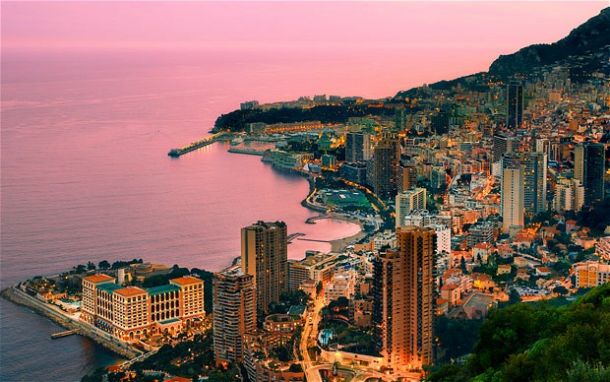The Davis Cup is the premier international event for men's tennis. Players compete in best-of-five ties on teams organized by nation. Tennis is a very global sport however, and many players do not live in the countries they represent. Some countries teams would be changed drastically, for better or for worse, while others would remain unchanged.
World Group Semifinalists
Three out of four of the semifinalist countries would be unaffected, while one finalist would become much deeper. Great Britain, Australia and Argentina would neither lose nor gain any notable players. Belgium, on the other hand, would gain two good players in world number 26 (all rankings as of Monday September 27th) Jeremy Chardy of France and world number 52 Pablo Andujar of Spain, which would give them an advantage over Andy Murray and the rest of the British team for the final.
The Rest of the World Group
The four semifinalist teams will be joined in the 2016 World Group by the United States, Canada, France, Switzerland, Germany, Italy, the Czech Republic, Croatia, Serbia, Kazakhstan, and Japan and Poland, which replaces Brazil in the only change from the 2015 World Group.
Out of those twelve countries, only Poland and Kazakhstan would be unaffected, with the former losing no players who compete for them in Davis Cup and the latter losing only 18 year old Dmitry Popko, who has been nominated twice but has never played a match. Italy is the only other country which would not benefit, but would also not be hurt too badly. Simone Bolelli would be unavailable, and while he is a fairly good singles player (his career high is 36th in the world and he is currently 62nd) and a very good doubles player (16th in the world), they would still have Andreas Seppi, Fabio Fognini, and Paolo Lorenzi.
Japan, Germany, Serbia and the Czech Republic would all lose their best players to other countries if this eligibility system was in place. Grand Slam finalist Kei Nishikori is a Florida resident, world number 33 Philipp Kohlschreiber lives in Kitzbühel, Austria, and ten-time major winner Novak Djokovic calls Monte Carlo home, as does world number five Tomas Berdych. Japan and Serbia would also lose Taro Daniel and Filip Krajinovic, their fourth highest ranked singles players at 124nd and 98th in the world, respectively. Serbia and the Czech Rublic would be left with good players such as Viktor Troicki and Jiri Vesely.
Croatia, France and Canada would be hit even worse, with each losing significant chunks of their teams. Croatia would be without both US Open champion Marin Cilic and top twenty player Ivo Karlovic. They would still have rising star Borna Coric and top doubles player Ivan Dodig. France would lose the most players, though they are currently one of the deepest countries of them all. Richard Gasquet (11th), Jo-Wilfried Tsonga (16th), Gilles Simon (10th), Gael Monfils (23th), and Jeremy Chardy (26th) are all top thirty players in the world who would all play for other nations. Players like Nicolas Mahut, Benoit Paire, Adrian Mannarino, Edouard Roger-Vasselin and Julien Benneteau would still be availible, however. Unlike France, Canada is not a particularly deep team and the entire core would be lost under the new rules. None of Milos Raonic, Vasek Pospisil and doubles legend Daniel Nestor are residents of the country, leaving it with no singles players in the top 200.
The United States and Switzerland are the only World Group countries who would benefit from the new eligibility rules. The US would gain just one player (though Kevin Anderson would also be eligible—he has dual citizenship and two official residences in the US and South Africa), but Nishikori is a very good tennis player and would instantly become their most dangerous weapon. Switzerland would win where France lost, gaining Gasquet, Simon, Tsonga, Monfils, and top ten doubles player Pierre-Hugues Herbert, to add to current Swiss stars Roger Federer and Stan Wawrinka. So they might have a decent team...
Congratulations Monaco
The Principality of Monaco is home to more top flight tennis players than any other country—or city-state. Djokovic, Berdych and Raonic would give Monaco three top ten players, a number only matched by Switzerland (Federer, Wawrinka and Simon). That is not quite all they would have, however. The Serbian, the Czech and the Canadian would be joined on Team Monaco by Cilic, 2014 Wimbledon semifinalist Grigor Dimitrov, twenty-first-ranked Bernard Tomic, Ukrainian Alexandr Dolgopolov, ranked thirty-fourth, and top doubles player Bolelli, as well as Serbia's Krajinovic. Some line-up. Other than Monaco, Austria would become more dangerous by adding Kohlschreiber to a team lead by Dominic Thiem, and the Bahamas would gain Canada's Pospisil and Nestor, both excellent and committed doubles players.

